Excavator hire rates in Australia: A comprehensive guide
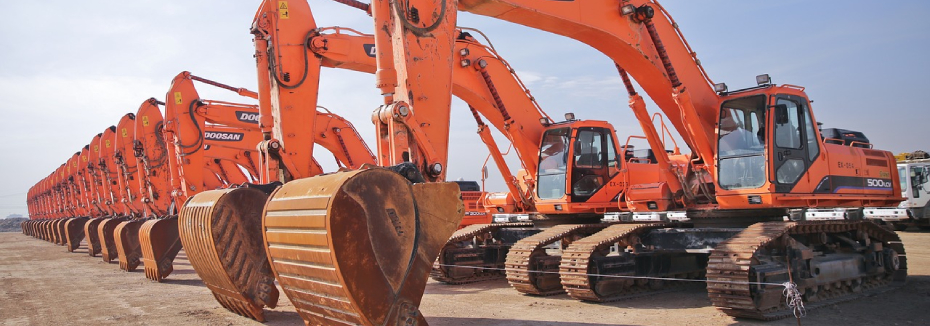
Plant and equipment hire rates can be volatile and unstable. They are not one-size-fits-all, rather hire rates will depend on different factors and tend to be project specific.
Based on research and insights from experts within the Felix team, we found that there are several factors that will affect how high or how low excavator hire rates will be.
Factors that affect excavator hire rates
- Excavator size
- Wet hire or dry hire
- Supply and demand by location
- Excavator type
- Time of hire
- Transportation cost
- Machine hours and maintenance
Size DOES Matter
Excavators come in all sizes and picking the right size for your project matters.
The size of an excavator can range between mini excavators that are 0-5 tonnes and standard sized ones that can be more than 500 tonnes big.
The reason why size matters is because not all excavators will fit your project and your budget.
Smaller excavators are perfect for tight access areas and are usually utilised for DIY or home improvement projects. Hiring a mini excavator can cost you between $14 and over $100 an hour.
On the other hand, standard sized excavators are the ones that you commonly see on construction and mining sites. These bigger excavators are not only used for digging, but are also used for material handling, demolition works and even snow plowing – truly a versatile piece of equipment. Hiring a standard size excavator will cost you between $40 and more than $200 an hour.
Excavator hire rates not only depend on its size, but it will also depend on other factors such as hiring it with or without an operator, having it transported to your project site, and even the type of excavator you need – which we will be discussing in the next sections of this post.
Wet hire vs. Dry hire
When hiring an excavator, you have to consider if you will hire one with an operator (wet hire) or without an operator (dry hire).
Mini excavators are usually easier to operate compared to standard sized excavators so you can opt to hire one without an operator and handle the equipment yourself. Just make sure you learn how to operate it from an expert or read the user manual before operating the mini excavator on your own to avoid getting into accidents.
Bigger excavators, however, have a more complex system and are harder to operate due to their size alone. This is why before you can operate any heavy machinery, you are required to have a license or some sort of certification that shows you have the capability and skills to operate the excavator.
Unless you have an experienced, licensed or certified operator in your employment, wet hiring an excavator is highly recommended.
| Category Excavator by size |
Average Wet Hire Rate $ per hour |
Average Dry Hire Rate $ per hour |
| 0 - 1.5 Tonne Mini | 86 | 24 |
| 1.6 - 2.5 Tonne Mini | 92 | 22 |
| 2.6 - 5.9 Tonne Mini | 106 | 47 |
| 6 - 10 Tonne | 111 | 56 |
| 11 - 15 Tonne | 125 | 58 |
| 16 - 20 Tonne | 147 | 73 |
| 21 - 25 Tonne | 149 | 69 |
| 26 - 30 Tonne | 160 | 97 |
| 31 - 35 Tonne | 168 | 101 |
| 36 - 40 Tonne | 167 | 78 |
| 41 - 45 Tonne | 181 | 91 |
| 46 - 50 Tonne | 198 | 125 |
| 51 - 55 Tonne | 203 | 93 |
| 56 - 60 Tonne | 220 | 131 |
| 61 - 65 Tonne | 246 | 129 |
| 66 - 70 Tonne | 312 | 136 |
| 71 - 75 Tonne | 311 | 208 |
| 76 - 80 Tonne | 310 | 172 |
| 81 - 85 Tonne | 285 | 177 |
| 86 - 90 Tonne | 520 | 166 |
| 91 - 95 Tonne | 165 | |
| 101 - 150 Tonne | 285 | 215 |
| 151 - 200 Tonne | 275 | |
| 201 - 300 Tonne | 368 | |
| 301 - 400 Tonne | 970 |
Excavators In Your Area
Like any product or service, hire rates are also affected by the law of supply and demand. To refresh your memory, the law of supply and demand explains the economic principle that when supply of a product or service is higher than the demand, prices will fall. Likewise, when demand exceeds supply, prices will rise.
This means when there is an oversupply of excavators or its substitutes within or around your jurisdiction, hire rates will likely be lower and vice versa.
Oversupply and undersupply will depend on the number of competitive equipment hire suppliers in a particular area or region.
Also keep in mind that excavator hire rates will differ from one state to another, which means hiring an excavator in New South Wales could be more expensive than in South Australia.
Let’s take a quick look the table below.
The Northern Territory has a higher average hire rate of $145/hour for a 6-10 tonne excavator compared to South Australia that has an average of $95/hour. The higher rate in the Northern Territory could be due to undersupply of excavators or suppliers in the region (remember the law of supply and demand).
| Category Excavator by size |
State / Territory | Average Hire Rate $ per hour |
| 6 - 10 Tonne | NT | 145 |
| VIC | 110 | |
| NSW | 109 | |
| QLD | 108 | |
| WA | 100 | |
| SA | 95 | |
| 11 - 15 Tonne | QLD | 131 |
| WA | 125 | |
| SA | 125 | |
| VIC | 124 | |
| NSW | 122 | |
| 16 - 20 Tonne | ACT | 158 |
| NT | 155 | |
| WA | 153 | |
| VIC | 142 | |
| NSW | 141 | |
| QLD | 140 | |
| SA | 137 | |
| 26 - 30 Tonne | NT | 175 |
| VIC | 165 | |
| QLD | 159 | |
| WA | 156 | |
| ACT | 154 | |
| SA | 130 | |
| 31 - 35 Tonne | NT | 200 |
| VIC | 175 | |
| SA | 169 | |
| QLD | 167 | |
| ACT | 163 | |
| NSW | 154 | |
| WA | 151 | |
| 36 - 40 Tonne | WA | 180 |
| SA | 175 | |
| VIC | 172 | |
| QLD | 164 | |
| NSW | 142 | |
| 41 - 45 Tonne | NSW | 198 |
| QLD | 196 | |
| SA | 190 | |
| WA | 170 | |
| VIC | 150 |
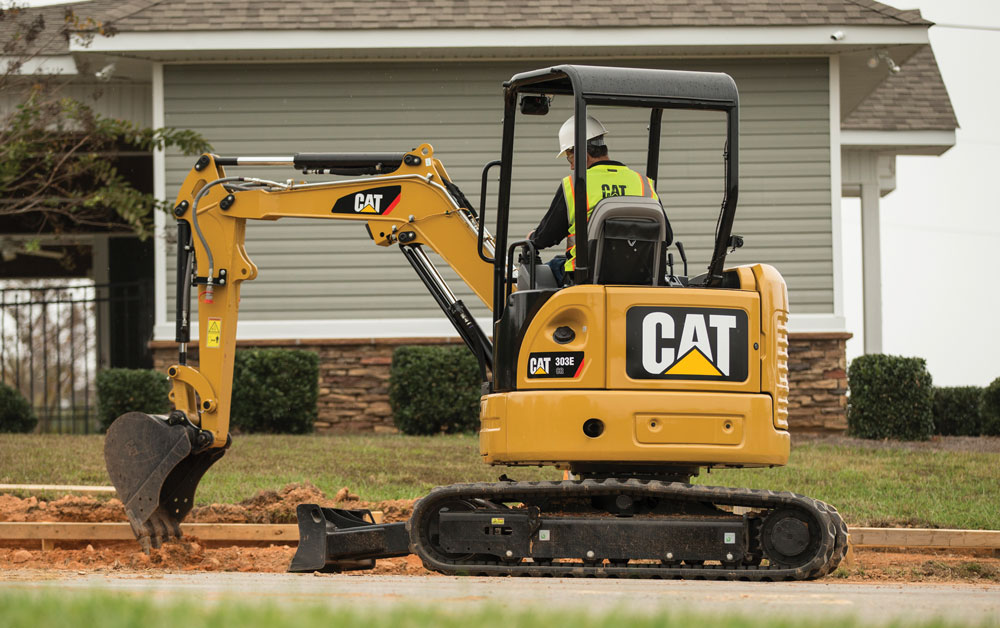 Mini excavator (source: Construction Review Online)
Mini excavator (source: Construction Review Online)
Excavator Type
Other than the mini and standard excavators, there are also different types of excavators that are used for certain site or project conditions.
The different categories of excavators you will see for hire include:
- Long reach excavator – it has a longer arm that range between 39 to 95 feet in length. This makes it ideal for dredging works and demolitions jobs.
- Spider excavator – living up to its name, the spider excavator’s undercarriage has legs instead of tracks to allow it to “walk” on all kinds of terrain such as uneven ground, narrow ditches or steep and inclined surfaces, which a standard excavator would have difficulty working on.
- Swamp excavator – also known as an amphibious excavator, this specialised piece of equipment was made to work in wet environments (such as swamps). It has a special kind of track that allows it to float on water, making it ideal for dredging work.
- Zero swing excavator – this type of excavator has a limited swing capability and can only swing within the width of its tracks, making it ideal for tight or confined spaces
- Wheeled or rubber tyred excavator – instead of tracks, this excavator moves around using wheels or tyres. This excavator is best used on project sites that have hard terrain such as asphalt or concrete.
- Clamshell excavator – instead of the regular bucket you see on other excavators, the clamshell excavator has a clam-like bucket.
- Hydro / vacuum excavator – more commonly known as HydroVac, this earthmoving equipment uses a combination of high-pressure water and vacuum to break down and remove soil, which is kept in the tank mounted on the truck.
- Excavator / Truck combo – this category simply means hiring an excavator along with a truck to transport the heavy machinery on.
- Truck / Excavator / Bobcat combo – similar to the category above, this is like a 3-in-1 deal where you hire an excavator along with a Bobcat and a truck to transport both equipment.
| Category Excavator by type and size |
Average Wet Hire Rate $ per hour |
| 2.6 - 5 Tonne Rubber Tyred | 113 |
| 11 - 15 Tonne Rubber Tyred | 118 |
| 16 - 20 Tonne Rubber Tyred | 125 |
| 0 - 5,000 Litre HydroVac | 199 |
| 6,000 - 10,000 Litre HydroVac | 234 |
| 11,000+ Litre HydroVac | 270 |
| Excavator / Truck Combo | 129 |
| Truck / Excavator / Bobcat Combo | 137 |
| Long Reach | 257 |
| Wheeled / Rubber Tyred | 133 |
| Spider | 400 |
| Swamp | 260 |
| Telescopic Clamshell | 325 |
| Zero Swing | 122 |
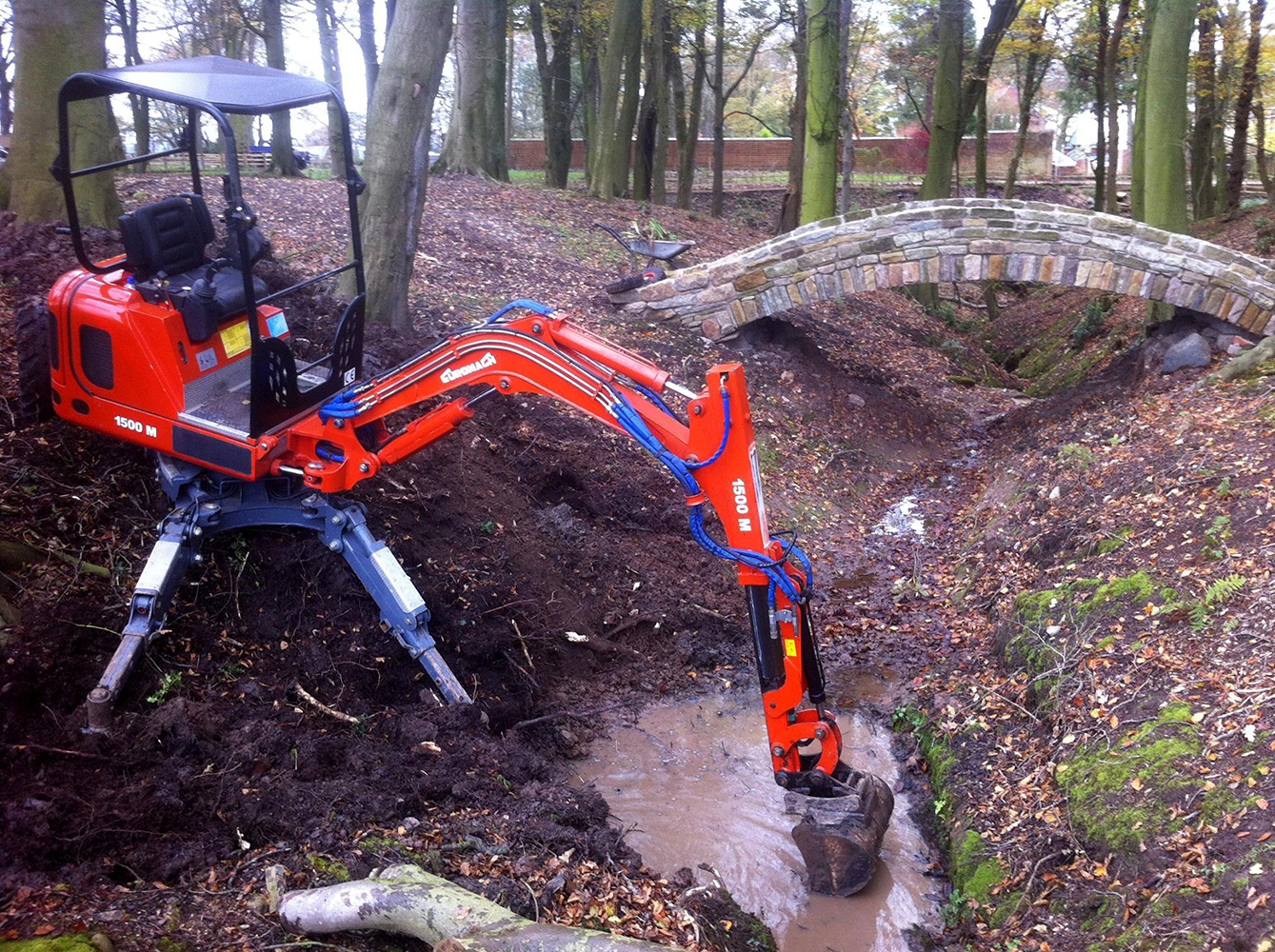 Spider / walking excavator (source: Euromach)
Spider / walking excavator (source: Euromach)
Time of hire
When you wet hire an excavator, the time of hire will also be factored in the rates because of labour fees for the operator.
The additional labour fees are going to be based on government regulations related to shiftwork, overtime work and public holiday pay.
| Category Excavator by size and type |
Rate type Wet Hourly |
Average Hire Rate $ per hour |
| 0 - 1.5 Tonne Mini | Overtime | 129 |
| Night rate | 76 | |
| 1.6 - 2.5 Tonne Mini | Night rate | 130 |
| 2.6 - 5.9 Tonne Mini | Night rate | 144 |
| Overtime | 135 | |
| Public Holidays | 150 | |
| 6 - 10 Tonne | Public Holidays | 148 |
| Overtime | 142 | |
| Night rate | 147 | |
| 11 - 15 Tonne | Night rate | 158 |
| Overtime | 163 | |
| Public Holidays | 174 | |
| 16 - 20 Tonne | Night rate | 258 |
| Overtime | 156 | |
| Public Holidays | 163 | |
| 21 - 25 Tonne | Overtime | 174 |
| Public Holidays | 185 | |
| Night rate | 173 | |
| 26 - 30 Tonne | Overtime | 190 |
| Night rate | 202 | |
| Public Holidays | 227 | |
| 31 - 35 Tonne | Night rate | 200 |
| Public Holidays | 227 | |
| Overtime | 227 | |
| 36 - 40 Tonne | Night rate | 245 |
| Overtime | 256 | |
| 41 - 45 Tonne | Night rate | 188 |
| Public Holidays | 210 | |
| Overtime | 205 | |
| 46 - 50 Tonne | Night rate | 202 |
| 51 - 55 Tonne | Night rate | 300 |
| 66 - 70 Tonne | Night rate | 340 |
| 76 - 80 Tonne | Night rate | 380 |
| 11 - 15 Tonne Rubber Tyred | Night rate | 135 |
| Overtime | 135 | |
| Public Holidays | 70 | |
| 0 - 5,000 Litre HydroVac | Overtime | 300 |
| Public Holidays | 300 | |
| Night rate | 280 | |
| 6,000 - 10,000 Litre HydroVac | Night rate | 255 |
| Overtime | 329 | |
| 11,000+ Litre HydroVac | Night rate | 329 |
Transportation
One advantage of hiring a mini excavator is that it is easier to transport to and from the project site since it is lighter and more compact, making mobilisation or demobilisation costs cheaper.
On the other hand, standard excavators or bigger excavators are harder to transport due to its size and weight. Larger equipment, in general, requires an equally larger means of transport that will cost more.
Another factor to consider when transporting an excavator is the location of the project site. Longer distance travelled will usually cost more, especially if the project site is located in a rural area.
However, there are cases when the equipment supplier will waive the mobilisation cost for long-term hire agreements.
Machine Hours and Maintenance
Newer excavators tend to have higher hire rates compared to older equipment. This is due to the fact that an older excavator has already depreciated in value due to the number of hours it has been used.
Like any piece of machinery, frequently used ones get wear and tear over time and this will decrease its value and hire price.
The hire rate provided to you by the supplier could also include maintenance cost. It would be best to ask the supplier for a breakdown of the rates so that you are aware what is included in the cost of hiring an excavator from them.
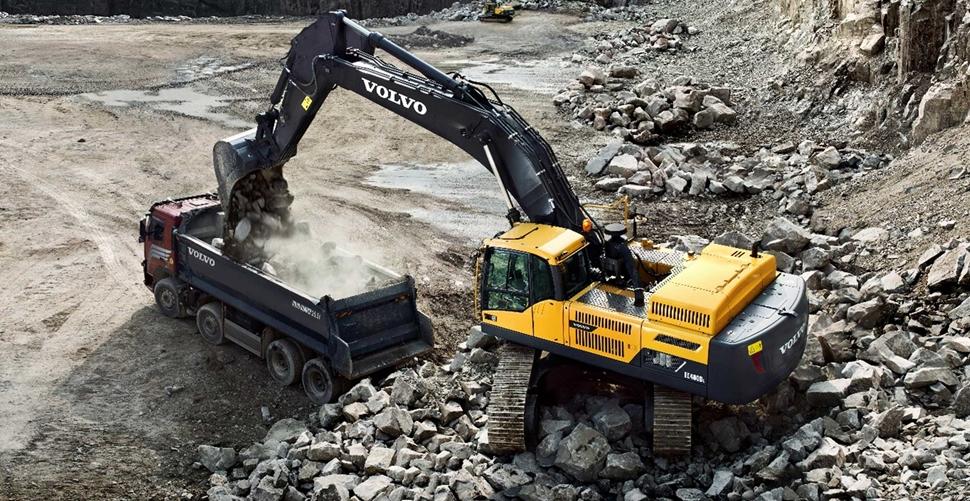 Standard excavator at work (source: Volvo Construction Equipment)
Standard excavator at work (source: Volvo Construction Equipment)
Tips and tricks to get relevant hire rates
Add specific project location
In order for the hire company to provide rates that are most relevant to your needs, you need to include the specific project location when requesting for a quote. This way, the supplier will be able to gauge fluctuations in rates based on your area.
Letting hire companies know the specific project location will allow them to check if there are access restrictions or difficulties along the way as well.
Hiring with or without an operator
As mentioned in the previous section of this post, hire prices will depend on whether you need an operator or not.
When asking for a quote, specify if you need to hire an excavator with an operator or not so the supplier can include this in the price breakdown.
Be specific with your timeline or schedule
When requesting for a quote, make sure to include your project timeline. The timeline should have the project start and end dates as well as possible breaks or down times when the excavator is not needed on site.
Delays in the project due to unforeseen events are inevitable and if this happens, make sure you keep the supplier in the loop as hire companies also try to stick to a schedule.
Also keep in mind that most, if not all, hire companies have a required minimum number of hours for both wet and dry hire. For the suppliers on Felix Vendor Marketplace, the average minimum hours is 4.
For long-term hire agreements, some suppliers could give discounts up to 10 per cent depending on their capability. However, according to insider info, with how the market is currently where availability is scarce, some suppliers will refuse to reduce their rates regardless of the duration of the hire agreement. Again, the law of supply and demand comes into play here.
Indicate additional requirements
Another important thing to note is to indicate any additional requirements you may need when sending in a quote request. This will help prevent any misunderstanding or surprises once you receive an invoice from the supplier as some fees or charges might not be included in the initial quote.
Additional requirements may include, but not limited to, fuel charges, maintenance cost, transportation/delivery/mobilisation or demobilisation fees and specific equipment features or attachments.
Disclaimer: The hire rates data found in this post is a snapshot of the market and does not guarantee the same rates at present. For the most up to date excavator hire rates, it is best to submit a quote request.
Being able to acquire the most accurate and relevant hire rates from suppliers will make the procurement process for any project a breeze and the Felix Vendor Marketplace can help.
Felix Vendor Marketplace lists thousands of equipment suppliers and subcontractors across Australia. The platform will not only allow you to request for quotes from equipment suppliers or subcontractors near you, but also allow you to compare quotes from several vendors, giving you the choice of which equipment or service to hire depending on your specifications and budget.
Our team aims to provide our readers and clients with industry knowledge that will be able to help them get relevant quotes for plant and equipment hire or subcontractor services. If you find this article helpful, please do subscribe to our blog for the latest project news and industry insights.

Related Articles

What to know when hiring an excavator
Hiring a suitable excavator can be tough. From sourcing the right machine, to evaluating the right skills of the operator, finding the perfect supplier can take ages. PlantMiner and Solution Plant Hire, want to make finding your ideal excavator and/or operator a little bit easier with tips to ask prospective suppliers, and what to look for in their answers.
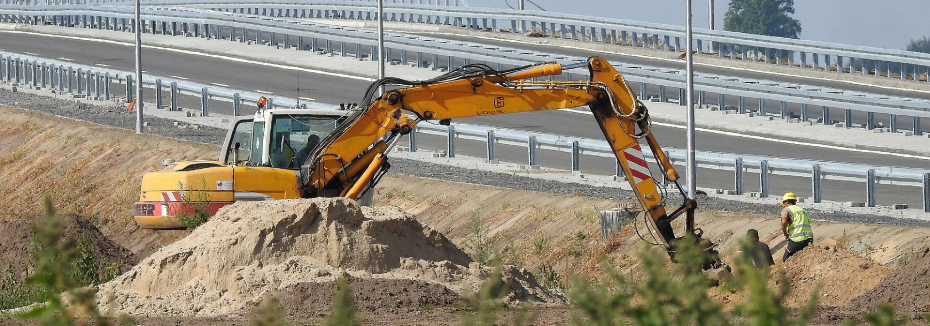
Extend the lifespan of your excavator with these tips & best practices
Running an equipment hire business is not as simple as buying several equipment and hiring them out. A good and reliable supplier should have a well-maintained fleet to ensure that hirers will not face a breakdown or possible accidents while using the hired machinery.

7 Advantages of using mini excavators
Small and compact, the demand for mini excavator hire has skyrocketed in the past decade. They might look tiny compared to their heavy duty big brother, but mini excavators can still pack a mean punch.
Get the latest project news
- updates on Australia's pipeline of state and federal projects
- fresh contract awards from major contractors and builders
If you're looking to contact us about other matters, please contact us.




